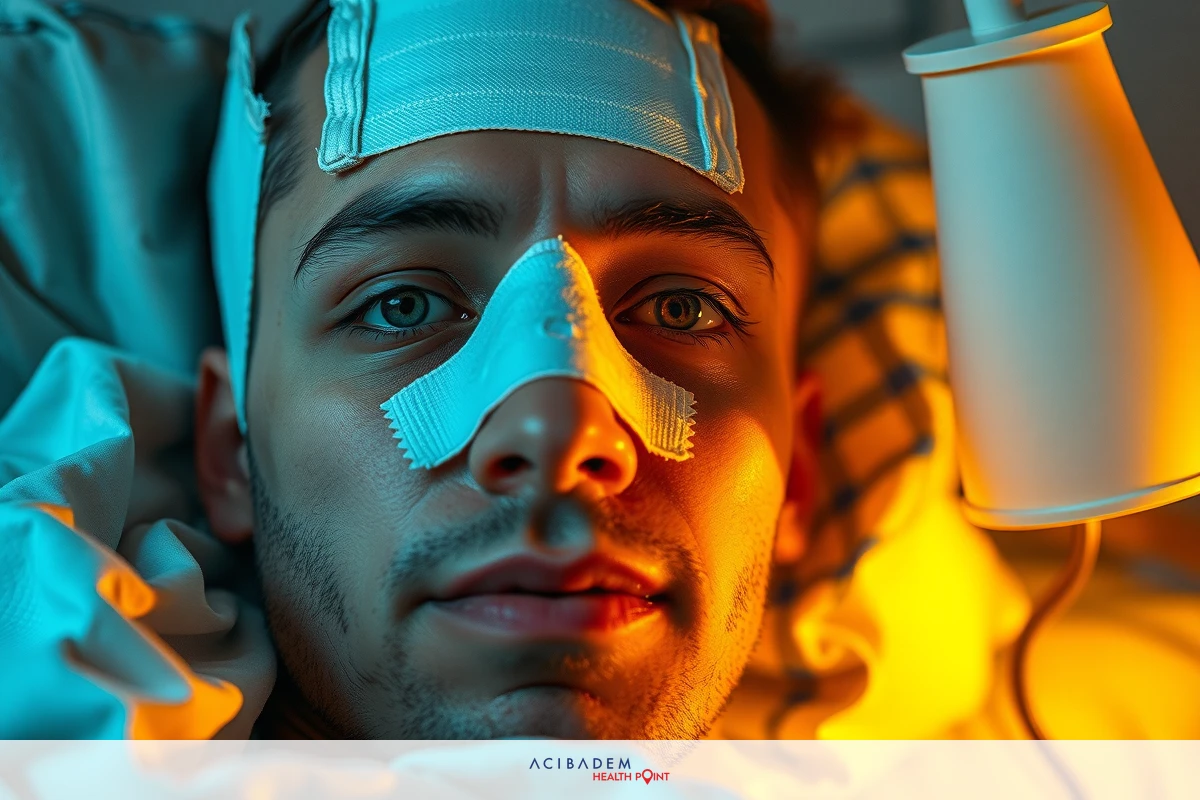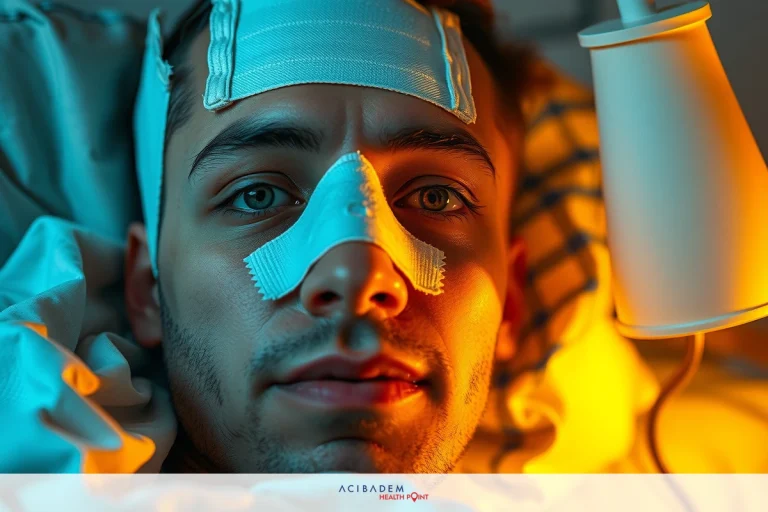Why Do Your Eyes Get Swollen After Nose Surgery?
Why Do Your Eyes Get Swollen After Nose Surgery? Nose surgery, while generally safe and effective, can occasionally result in a variety of postoperative symptoms. One of the most common of these is eye swelling or inflammation. This phenomenon occurs due to the close anatomical proximity of the eyes to the nose, which means that any surgical procedures performed on the nose can potentially impact the surrounding areas.
Eye swelling after nose surgery is typically a temporary condition that resolves itself as the body heals. It’s important for patients to understand this symptom, what causes it, and how they can manage it effectively during their recovery period. This knowledge can give patients peace of mind and enable them to focus on their recovery with confidence.
Understanding Eye Inflammation
Eye inflammation, or swelling, is a common symptom following nose surgery. The primary reason for this lies in the close anatomical relationship between the eyes and the nose. When nose surgery is performed, it’s inevitable that some level of disruption occurs in the surrounding tissues. This can lead to an inflammatory response which manifests as swelling around the eyes.
The degree of eye swelling typically correlates with the extent of the surgical procedure. More invasive surgeries, such as those involving bone restructuring or extensive tissue removal, are more likely to result in pronounced inflammation. However, it’s important to note that swelling does not necessarily indicate a problem with the surgery itself. Instead, it can be seen as a sign that the body is responding appropriately and working to heal itself.

In terms of recovery, understanding the role of inflammation can help patients better manage their postoperative symptoms. Inflammation is part of the body’s natural healing process, and while it may be uncomfortable, it’s usually a good sign that healing is underway. Over time, as the body heals and recovers from surgery, the swelling will naturally subside. Patients can also take steps to minimize swelling, such as using cold compresses and elevating their head while sleeping. Ultimately, patience and proper self-care are key components in managing eye swelling during the recovery process after nose surgery.
Managing Swollen Eyes
When it comes to managing swollen eyes after nose surgery, there are several effective strategies that can alleviate discomfort and expedite the healing process. First and foremost is the use of cold compresses. Applying a cold pack to the affected area for 15 minutes at a time, several times a day, can significantly reduce inflammation and swelling. The cold helps to constrict blood vessels, which reduces fluid accumulation and thereby decreases swelling.
In addition to cold compresses, maintaining an elevated head position can also be beneficial. By keeping the head elevated above the heart, especially when sleeping or resting, patients can minimize fluid accumulation in the facial area and subsequently lower the degree of eye swelling. This position can be achieved by using
extra pillows or a reclining chair. It’s important to maintain this head position as consistently as possible in the early stages of recovery.
Moreover, over-the-counter anti-inflammatory medications can also be used to manage swelling and discomfort. Non-steroidal anti-inflammatory drugs (NSAIDs), such as ibuprofen, are often recommended. However, it’s essential to consult with your healthcare provider before starting any new medication regimen
post-surgery. Lastly, maintaining good hydration and a balanced diet rich in proteins and vitamins can also contribute positively to the healing process and reduction of eye swelling. While these methods don’t directly target eye inflammation, they bolster overall health and well-being, which can indirectly aid in faster recovery after nose surgery.
Why Do Your Eyes Get Swollen After Nose Surgery?:Frequently Asked Questions
How long does eye swelling typically last after nose surgery?
The duration of eye swelling can vary from person to person. In most cases, the swelling peaks within the first 48 to 72 hours after surgery and gradually subsides over the following weeks. However, it's essential to remember that every individual's healing process is unique, and factors such as the extent of surgery and individual health can influence the duration of eye swelling.
Is it normal to experience discomfort or pain along with swollen eyes?
Yes, it is normal to experience some discomfort or pain along with swollen eyes after nose surgery. The surgical procedure can cause tissue trauma and inflammation, leading to localized discomfort. This discomfort is usually managed through prescribed pain medications provided by your healthcare provider. If you have concerns about the level of pain or if it becomes increasingly severe, it's important to contact your healthcare provider for further evaluation.
Can I apply makeup while my eyes are still swollen?
It is generally recommended to avoid applying makeup on or around swollen eyes during the initial stages of recovery after nose surgery. Makeup can potentially irritate the sensitive skin and interfere with the healing process. It's best to consult with your healthcare provider regarding when it is safe to resume using makeup.
re there any specific activities I should avoid during the recovery period to prevent worsening eye swelling?
It is advisable to avoid activities that may increase blood flow to the face and exacerbate eye swelling. These activities include strenuous exercise, heavy lifting, bending over, and activities that involve straining or putting pressure on the facial area. Following postoperative instructions provided by your surgeon will help ensure a smooth recovery and minimize complications.
When should I be concerned about my eye swelling after nose surgery?
While eye swelling is a normal part of the healing process after nose surgery, there are instances when it's important to seek medical attention. If you experience severe or worsening eye swelling, intense pain, vision changes, discharge, or signs of infection such as redness, warmth, or fever, it is crucial to contact your healthcare provider promptly for evaluation and appropriate management.











